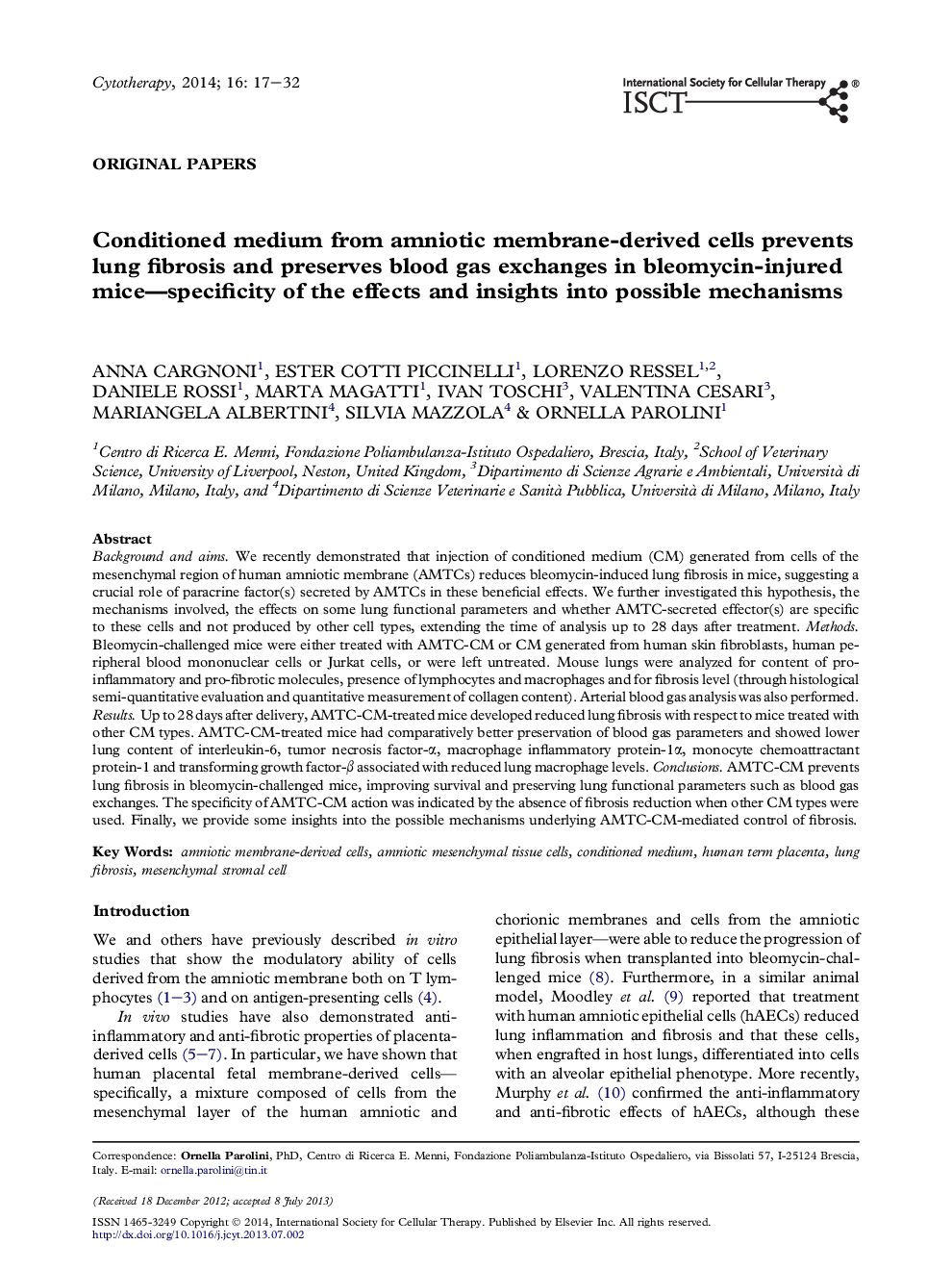| Article ID | Journal | Published Year | Pages | File Type |
|---|---|---|---|---|
| 2172246 | Cytotherapy | 2014 | 16 Pages |
Background and aimsWe recently demonstrated that injection of conditioned medium (CM) generated from cells of the mesenchymal region of human amniotic membrane (AMTCs) reduces bleomycin-induced lung fibrosis in mice, suggesting a crucial role of paracrine factor(s) secreted by AMTCs in these beneficial effects. We further investigated this hypothesis, the mechanisms involved, the effects on some lung functional parameters and whether AMTC-secreted effector(s) are specific to these cells and not produced by other cell types, extending the time of analysis up to 28 days after treatment.MethodsBleomycin-challenged mice were either treated with AMTC-CM or CM generated from human skin fibroblasts, human peripheral blood mononuclear cells or Jurkat cells, or were left untreated. Mouse lungs were analyzed for content of pro-inflammatory and pro-fibrotic molecules, presence of lymphocytes and macrophages and for fibrosis level (through histological semi-quantitative evaluation and quantitative measurement of collagen content). Arterial blood gas analysis was also performed.ResultsUp to 28 days after delivery, AMTC-CM-treated mice developed reduced lung fibrosis with respect to mice treated with other CM types. AMTC-CM-treated mice had comparatively better preservation of blood gas parameters and showed lower lung content of interleukin-6, tumor necrosis factor-α, macrophage inflammatory protein-1α, monocyte chemoattractant protein-1 and transforming growth factor-β associated with reduced lung macrophage levels.ConclusionsAMTC-CM prevents lung fibrosis in bleomycin-challenged mice, improving survival and preserving lung functional parameters such as blood gas exchanges. The specificity of AMTC-CM action was indicated by the absence of fibrosis reduction when other CM types were used. Finally, we provide some insights into the possible mechanisms underlying AMTC-CM-mediated control of fibrosis.
